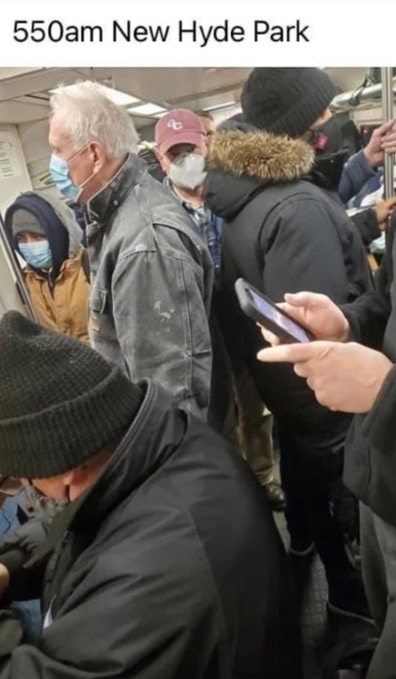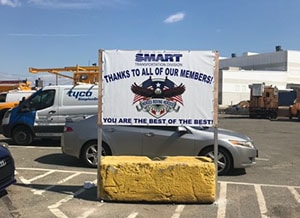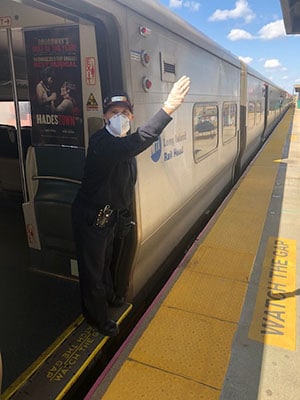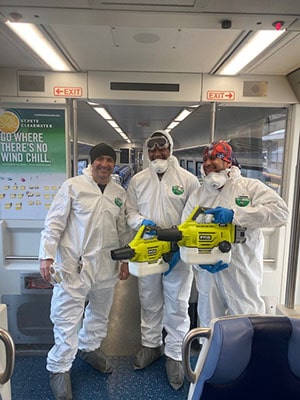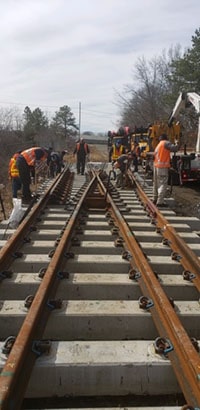On January 13, 2025, SMART Railroad, Mechanical and Engineering Department (SMART-MD) members ratified the national agreement with the National Carriers’ Conference Committee (NCCC)-represented railroads.
The five-year agreement is virtually identical to other freight rail agreements and provides:
- Annual general wage increases effective July 1 of each calendar year, totaling 17.5% (over 18.75% when compounded);
- Paid vacation days for new-hire employees;
- Accelerated qualification and accrual of paid vacation for tenured employees;
- Various improvements to health and welfare benefits, including the extension of health and welfare coverage for surviving dependents, male sterilization procedures (i.e., vasectomy), as well as substantial increases for vision frame allowances (from $115 to $250 every two years) and an orthodontia lifetime maximum benefit increase from $1,000 to $2,500 per covered individual;
- An optional high-deductible health plan with lower monthly cost-share contribution that will be available in 2026;
- Increased opt out payment of $200 per month for employees who select not to have health insurance.
“The ratification of this agreement demonstrates SMART-MD’s commitment to negotiating for the improvements members have said they need: better pay and benefits, flexibility and increased quality of life,” said SMART General President Michael Coleman. “Almost as important is the fact that these negotiations were conducted in a timely, good-faith manner. I want to thank SMART-MD negotiators for their leadership and SMART-MD members for their engagement in this process.”
“I am glad the members ratified the national agreement,” SMART General Committee 2 Directing General Chairperson John McCloskey added. “It is one of the best negotiated agreements in my career and will provide meaningful improvements to the members, in record time. We hope that future rounds of national negotiations proceed more sensibly and result in fairer agreements such as this.”
CPKC, Union Pacific Railroad and Alton Southern did not participate in national negotiations this round and remain the only other freight rail properties that have not reached tentative agreements with SMART-MD.
